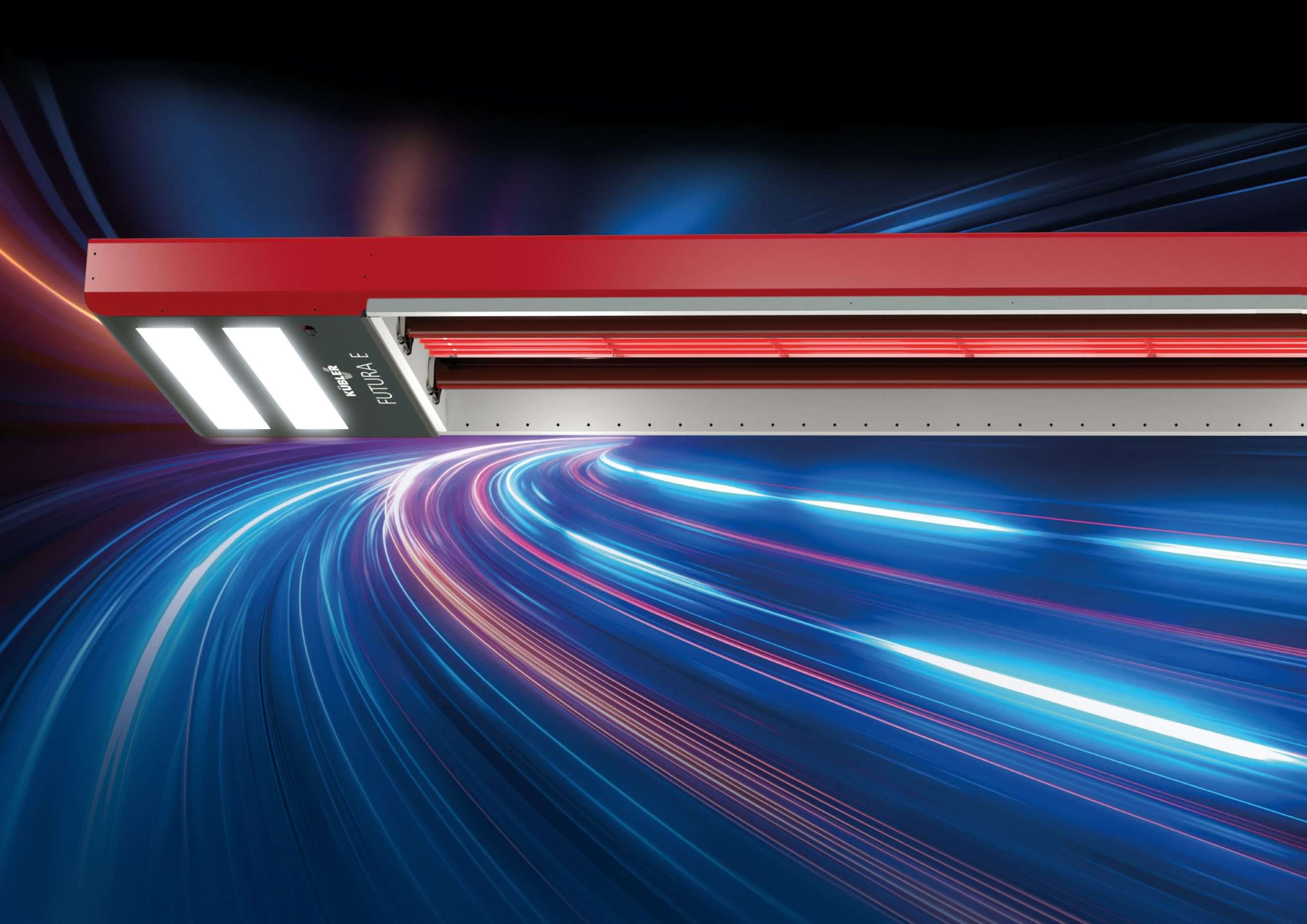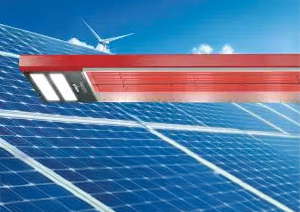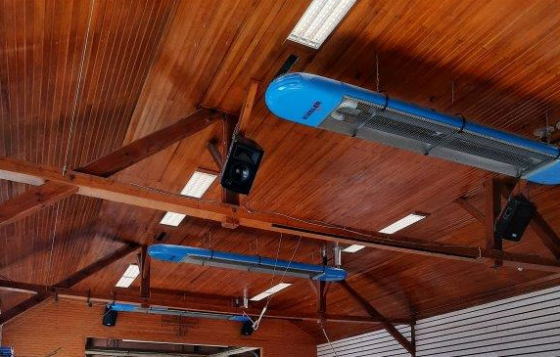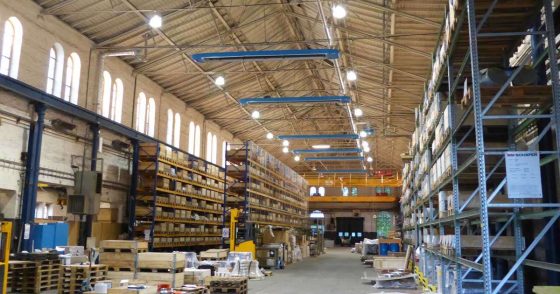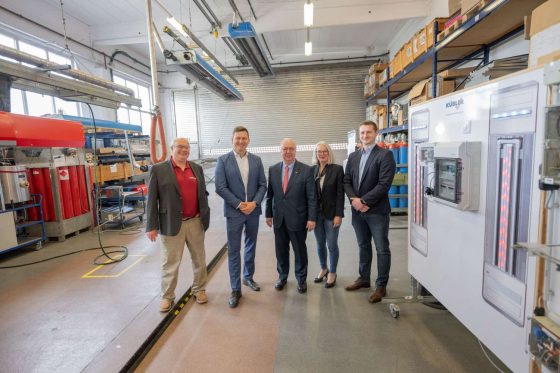World first wins Rhineland-Palatinate Innovation Award. FUTURA heats halls for the energy transition: With electricity, with hydrogen, with gas.
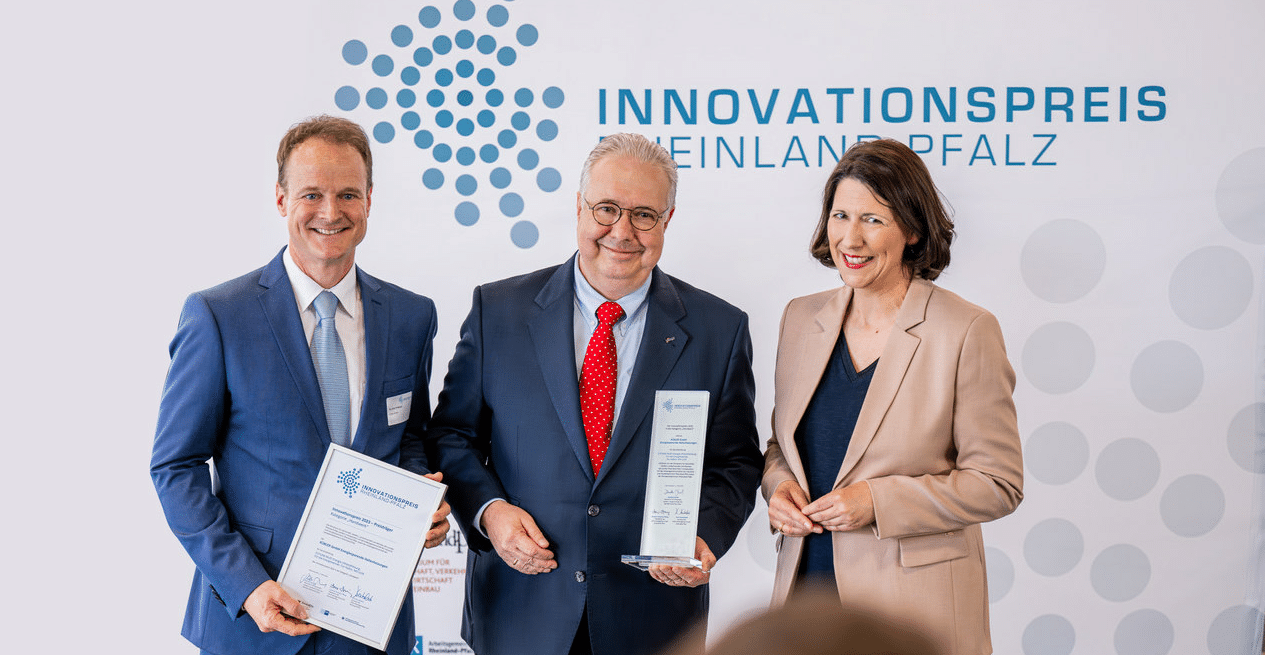
"The energy transition needs realistically feasible and affordable solutions",
says Thomas Kübler, expert in hall heating technologies and founder of KÜBLER GmbH. One such solution is the latest development from the Ludwigshafen-based company - called FUTURA. The innovative infrared hall heating system integrates LED hall lighting in a single device. Above all, however, it enables the economical path to CO2-This world first can be operated - in mixed or mono mode - with renewable or established energy sources. An important contribution to climate protection, which the Ministry of Economic Affairs, Transport, Agriculture and Viticulture awarded the Rhineland-Palatinate Innovation Prize on Friday as the winner in the "Craft" category.
FUTURA is a highly efficient, multi-energy carrier-capable, fully digitalized infrared heating system for CO2-neutral heat supply for industrial and other hall buildings. Regardless of whether green hydrogen or electricity determines the future: FUTURA can do both. The multi-energy IR heating system can also use biogas, (biogenic) liquid gas or natural gas and allows variable switching between the energy sources depending on availability. This balances out the volatility of renewable energies and thus ensures operational reliability.
"FUTURA is the investment-safe hall heating solution for the entire transformation path of decarbonization - from today to beyond 2045."
The FUTURA is installed on the hall ceiling and thus ensures maximum flexibility for the use of the hall floor and work areas. The infrared heating works in the same way as the sun. It heats everything that is illuminated: People, machines, hall floor. The heat comes from above, below and from all sides at the same time. The ideal way to heat large rooms effectively and economically, as this heat transfer is energy-efficient with savings of 50 to 70 percent. "With FUTURA, we heat flexibly in terms of time and location," says Kübler, "because we only cover the heat demand that actually exists. After all, the most efficient heating system is the one that isn't running."
The multi-energy infrared heater brings light into the energy revolution.
Since lighting and infrared heating work according to the same physical laws, both systems often compete for space under the hall ceiling. This problem is solved because FUTURA can optionally combine both functions in one device. This also increases the sustainability and cost-effectiveness of the innovation, as only one infrastructure is required for both functions. It also reduces planning, implementation, space requirements and service costs. The energy-saving LEDs provide high-quality light and fatigue-free working conditions. They are glare-free, flicker-free, highly efficient and CE-compliant.
KÜBLER wins the prestigious innovation award for the fourth time.
"Innovations are the engine of our economy and therefore a guarantee for prosperity," says Minister of Economic Affairs Daniela Schmitt, who presented the prestigious award during the festive award ceremony at the Kaiserslautern Vocational Training and Technology Center. This is the fourth time that KÜBLER has been recognized by the state of Rhineland-Palatinate for its outstanding innovative achievements. The Rhineland-Palatinate Innovation Prize is awarded jointly by the Ministry of Economic Affairs, Transport, Agriculture and Viticulture and the Rhineland-Palatinate Chambers of Industry and Commerce and Chambers of Crafts. The jury has awarded the prizes in the categories "Company", "Craft", "Cooperation", "Special Industry Prize" and "Special Prize of the Minister of Economic Affairs 2023: CO2-reduction through innovative processes and products'".
Find out more about our FUTURA multi-energy infrared system now: https://www.kuebler-hallenheizungen.de/pages/futura/
-
Turnverein Mußbach e.V. is a traditional sports club with a long history. Since it was founded in 1860, it has got a large number of people of all ages and backgrounds moving and now has over 1,200 members. In order to meet the demands and needs of its members, the decision was made to replace the club's outdated heating system.
-
Gas is decentralized, flexible, can be stored efficiently and is inexpensive. The energy source is a guarantee for the success of the energy transition. Ten associations from the gas industry have joined forces and formulated an appeal for the climate protection plan, explaining why gas as an energy source can already achieve significant CO2 savings cost-effectively today.
-
"The best kilowatt hour is the one saved," says Thomas Kübler. The managing partner of KÜBLER GmbH Energiesparende Hallenheizungen is in good company. DENEFF also states* that too little is being invested, even though energy efficiency pays off, and quotes Lower Saxony's Energy Minister Olaf Lies with his plea for an energy policy based on the principle of "Efficiency First". Experts agree that if the 2030 climate targets are to be even remotely achieved, effective measures are needed quickly. The first priority is to reduce energy consumption. The solution to this can be found in the industrial sector with specially developed hall heating systems from KÜBLER. They combine enormous savings potential with a short ROI.
-
State Secretary Mario Brandenburg, Member of the Bundestag, in conversation with Thomas Kübler, Dr. Steffen Manser (KÜBLER GmbH) and Prof. Dr. Matthias Rädle (CeMOS) on the subject of research, development and what is needed to reduce CO2 in industry and commerce.
